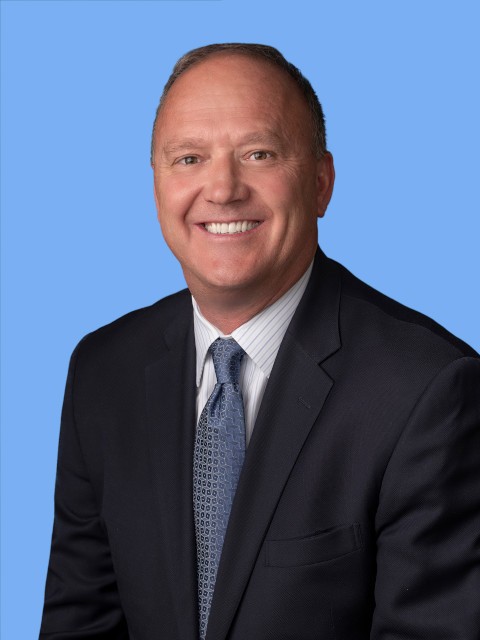Key takeaways
- What is Review Choice Demonstration?
- Latest updates surrounding the RCD implementation.
- The challenges of RCD.
- How a trusted partner can help your hospital prepare.
What is Review Choice Demonstration (RCD)?
- RCD is a program set forth by CMS to protect Medicare funds from mis-payment and fraud. The goal is to improve compliance with Medicare program requirements and help ensure the right payments are made at the right time for the hospital-based acute rehabilitation units (ARUs) or inpatient rehabilitation facilities (IRFs).
- The RCD only applies to Medicare fee-for-service (FFS) claims.
- The duration of the RCD is five years.
Hospitals have two options for how claims will be reviewed as part of RCD:1
Pre-claim review
- Submitters may submit a pre-claim review request at any time prior to the submission of the final claim.
- An unlimited number of resubmissions of the pre-claim review request are allowed prior to the submission of the final claim.
- The MAC will communicate a decision to provisionally affirm or non-affirm via telephone within two business days.
- The MAC also will provide a detailed decision letter within 10 business days of the review.
Postpayment review
- 100% of claims are reviewed after final claims have been submitted and paid.
- This review follows current postpayment medical review processes (Additional Documentation Request: ADR).
- If CMS finds that the claim was not in compliance with Medicare requirements, the hospital may be required to refund the payment.
- This is the default selection if no initial review selection is made.
- The first RCD began in Alabama on August 21, 2023.
- The next states set to undergo the RCD include (start date TBD):
- Pennsylvania
- Texas
- California
- All states will receive a 90-day notice prior to the RCD implementation where they will be able to select their preferred review process. Facilities have until two weeks before implementation to make their selection or they are defaulted to postpayment.
- IRFs in MAC jurisdictions JJ, JL, JH, and JE are on the list for future implementation (dates TBD).
The top 4 challenges of RCD and how partnership with a focused rehabilitation expert can help
- Complex process and continual changes: The RCD requires a new set of processes, greater documentation and adherence. Reviews are measured in 6-month cycles.
If documentation is not timely and adequately completed, facilities will experience greater denial rates. This could lead to facilities incurring cost, but not being reimbursed for the cost.
Having a dedicated partner to guide the facility through each review cycle and provide the education, tools and training can help ensure facilities are prepared, lowering the risk of denial. An expert partner will also have a skilled Clinical Documentation Integrity team dedicated to helping partners through RCD. - Assessment of compliance risk: There are pros and cons to both pre- and post-selection. A hospital must carefully weigh each option to determine the best strategic fit.
If an option is not chosen by the mandated date, CMS will auto-select the postpayment review process which could have negative impacts. When the hospital is making its decision, leveraging the support of a rehabilitation expert can help hospitals make a timely and strategic decision on which option is the best fit for their hospital overall. - Access to IRF care: Identifying the right patient at the right time in their care journey that meets IRF requirements has never been easy. RCD adds another level of complexity and scrutiny. This could result in patients being prematurely denied rehabilitation access due to fear of denials – even though the patient does meet all requirements.
Limited rehabilitation access could cause a multitude of rehab-qualifying, medically complex patients to be denied IRF treatment and admitted to a lower level of post-acute care not equipped to take on their care needs. Ultimately, this increases length of stay, readmission risk and care cost, while lowering overall patient satisfaction.
A focused rehabilitation partner can help give hospitals confidence in the review process and help foster appropriate patient access. - Unanswered questions: CMS will continue changing aspects of RCD as it is rolled out. There are and will continue to be many unknowns within the process overall. Without the help of a focused partner, hospitals are left to navigate the complexities and changing process on their own – which could lead to errors and increased denial rates.
A focused rehabilitation partner can stay ahead of the changing landscape and help relieve the burden of RCD – allowing hospitals to focus on what matters most: the patient.
Looking for more information on RCD and which review option is the best fit for your hospital? Contact us today for a no-cost strategic consultation.
About Lifepoint Health
As one of the largest rehabilitation providers in the nation, Lifepoint Rehabilitation has proven experience with the OIG and other demonstrations. Further, Lifepoint has dedicated teams of RCD specialists and Clinical Demonstration Integrity. These teams are designed to quickly pivot based on the latest CMS changes and guide contract management and joint venture partners through every stage of the process.
Lifepoint’s diversified healthcare delivery network extends from coast to coast, consisting of 64 community hospitals, more than 60 rehabilitation and behavioral health hospitals, and 300+ additional sites of care. With decades of specialized expertise, Lifepoint delivers high-quality outcomes to over 160,000 patients per year at more than 1,000 sites nationwide.
References:
- Centers for Medicare and Medicaid Services. (2023). Review choice demonstration for inpatient rehabilitation facility services. CMS.gov. https://www.cms.gov/es/node/1691166

